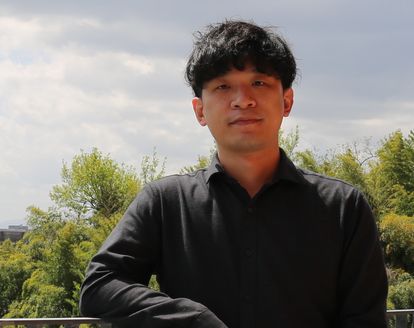Jihoon Park

Main Lab Location:
CiNet (Main bldg.)Specific Research Topic:
Cognitive developmental robotics, Computational neuroscienceMailing Address:
1-4, Yamadaoka, Suita, Osaka 565-0871 JapanEmail:
jihoon.park at nict.go.jpMy research focuses on understanding neural dynamics using a constructive approach. Human motor and cognitive functions are closely related not only to the brain but also to the body. The brain of a human receives sensory input and exhibits behaviors through the body. Further, since the brain has plasticity, the brain’s structure changes according to the sensory information from the body, and the changed structure affects neural activity and behaviors. Therefore, to understand human motor and cognitive functions, it is necessary to understand the self-organization of the coupled dynamics from the interaction of the brain and body.
From this perspective, I attempt to reveal how the components of the brain-body system and their interaction affect the cognitive functions, behavior, and learning skill of the human through simulation models using a musculoskeletal model and neural networks. I expect that this kind approach will be useful not only for neuroscience, but also for applications in robotics and AI.
Selected Publications:
Jihoon Park, Yuji Kawai, and Minoru Asada. Spike timing-dependent plasticity under imbalanced excitation and inhibition reduces the complexity of neural activity. Frontiers in Computational Neuroscience, 17:1169288, 2023.
Jihoon Park, Koki Ichinosei, Yuji Kawai, Junichi Suzuki, Minoru Asada, and Hiroki Mori. Macroscopic Cluster Organizations Change the Complexity of Neural Activity. Entropy, Vol.21, 2019.
Yuji Kawai, Jihoon Park, and Minoru Asada. A small-world topology enhances the echo state property and signal propagation in reservoir computing. Neural Networks, Vol.112, pp.15–23, 2019.
Jihoon Park, Hiroki Mori, Yuji Okuyama, and Minoru Asada. Chaotic itinerancy within the coupled dynamics between a physical body and neural oscillator networks. PLOS ONE, Vol.12, No.8, e0182518, 2017.
